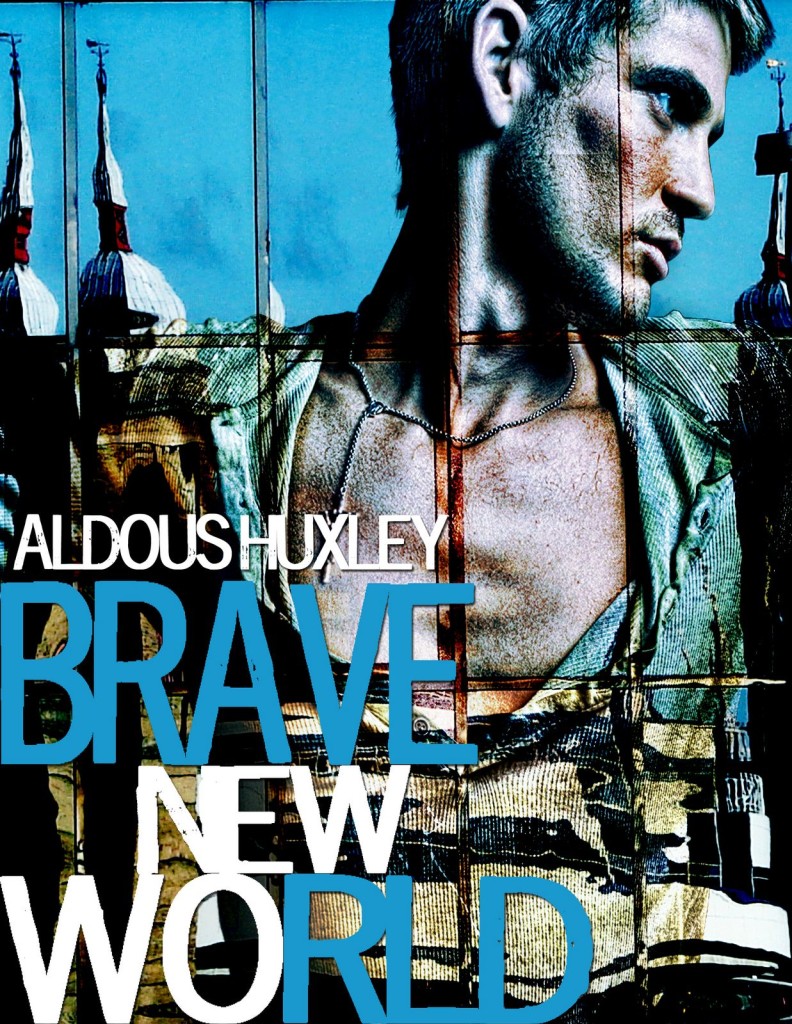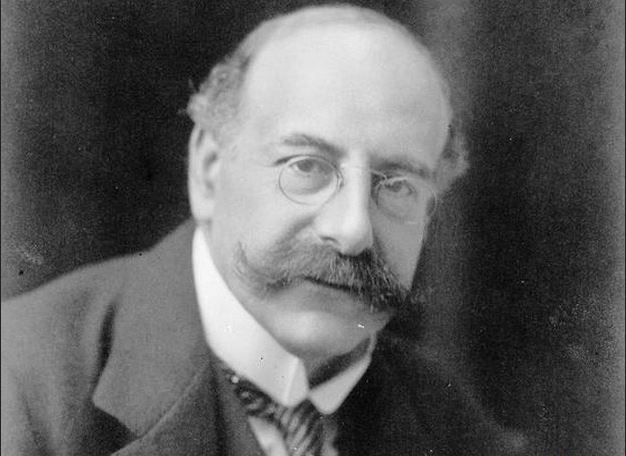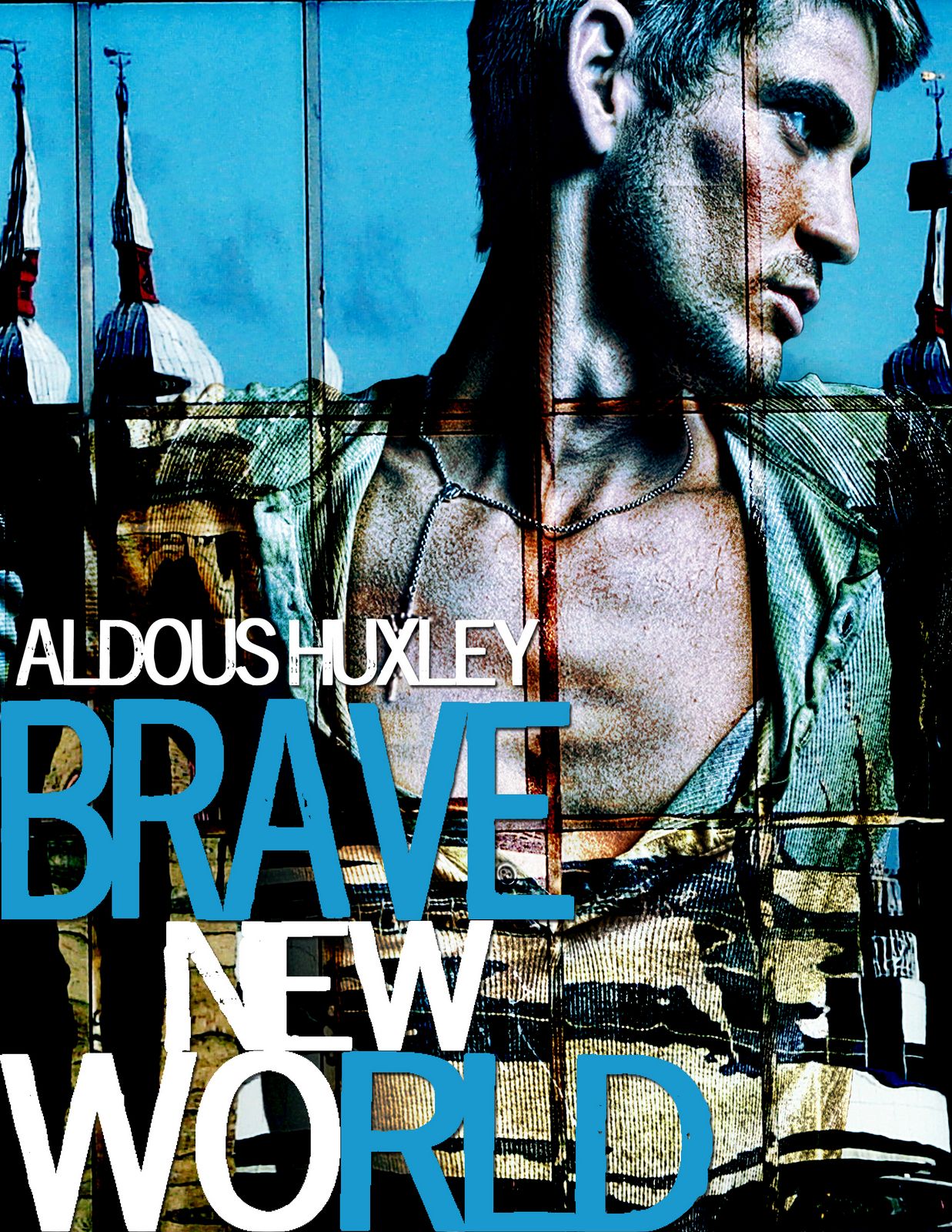Benjamin Garland
Daily Stormer
March 8, 2015

A few days ago, we reported on some interesting remarks that the brilliant British author/philosopher Aldous Huxley made about our eternal Jewish enemy.
These revelations motivated me to go back and reread his seminal work Brave New World, as it had been many years since I had done so. Much to my surprise, and completely unexpectedly, I found myself noticing what seemed like obvious anti-Jewish and pro-White undertones in the book, such as the Jewish nature of the villains and the Aryan nature of the heroes (the “world controller” character is described as having a “hooked nose” and the hero as a blonde European, for example).
Upon doing a bit of internet research to put together a piece about this, I discovered that I was not the first to come to these conclusions after stumbling across an article at the website Jett and Jahn that says essentially the same thing.
The article basically encompasses all of my observations and could hardly be improved upon, so I will just quote it in full.
In Brave New World, Aldous Huxley Warned About Jews:
British author Aldous Huxley wrote “Brave New World” in 1931.
The book is a parody of utopian novels he had read that predicted a “glorious future”. Huxley was skeptical of modernization and worried about the social effects of the Industrial Revolution.
His novel actually describes a dystopia, a liberal society controlled by a small group of people.
Most of the negative characters from the book are named after famous Jews:
Bernard Marx: Named after Jewish revolutionary Karl Marx
He has an inferiority complex since he is shorter and thinner than other males. He is very critical of society out of jealousy because he doesn’t feel accepted.
Lenina Crowne: Named after Jewish revolutionary, Vladimir Lenin
She is very attractive, popular, and charismatic. She has sex with many different men in the story.
Morgana Rothschild: Named after Rothschild Jewish banking family
Bernard accidentally sits next to her at the orgy ceremony in Chapter Five. He immediately regrets it because she has a unibrow…
Polly Trotsky: Named after Jewish revolutionary, Leon Trotsky
She is a young girl who briefly appears at the beginning of the book. She makes a sexual advance at a young boy but he gets upset and rejects her.
Mustapha Mond: Named after Jewish Zionist Alfred Mond
He is the World Controller for Western Europe (how fitting?). He is very intelligent but uses his knowledge to manipulate people.
In Chapter Three, he is desribed as “a man of middle height, black-haired, with a hooked nose, full red lips, eyes very piercing and dark”. (need any more proof?)

Meanwhile, the noble characters in Huxley’s story are clearly not Jewish:
Helmholtz Watson: Named after German physicist Herrmann Vonn Helmholtz
He is a professor at the College of Emotional Engineering. He is tall, strong, athletic, and handsome but his intelligence isolates him from others. He is unsatisfied and feels emptiness but doesn’t know what to do about it. He gets in trouble when the government discovers a poem he has wrote about being introverted. Eventually, he is deported to a stranded island but views the punishment as an opportunity.
The main character of the story, John “The Savage” was not named after a specific person but symbolizes the traditional idea of a “hero”. He grew up on a Native Reservation in America but didn’t fit in because he was a blonde European. He is chivalrous, disciplined, and intelligent but introverted and feels isolated.
Huxley’s predictions are fascinating to read from the modern perspective.
For example, the word “God” has been replaced with “Freud”, the Jewish psychologist behind the Sexual Revolution.
In Huxley’s story, Freud is honored as “the first to reveal the appalling dangers of family life”. In the future society, the family has been destroyed and the state raises children.
If you haven’t read this book, I strongly recommend it. (Here is a link to a free online copy).
The beginning is confusing but necessary to help build the story.
(Unfortunately, there are no movie versions that follow the actual storyline from the book. The Jews in Hollywood obviously wouldn’t let that happen…)
It’s impossible for anyone to know what was going through Huxley’s mind when he wrote Brave New World, but it is hard to believe that this wasn’t intentional. And, if it wasn’t, that means he subconsciously envisioned a dystopian future as being a struggle between Jewish oppressors and Aryan victims, which is in itself pretty fascinating.
